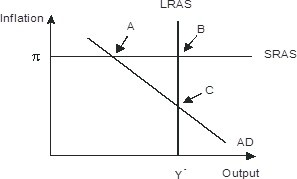Define price discrimination. What factors must be present in order for a firm to price discriminate? Why do firms price discriminate?
What will be an ideal response?
Price discrimination is selling a good or service at a number of different prices. In order to price discriminate, the firm must be able to identify and separate different types of buyers. In particular, the firm must be able to identify which buyers are willing to pay a higher price than other buyers. And the firm must sell a product that cannot be resold. Therefore it must not be possible for a buyer who pays a low price to resell the product to a buyer who is willing to pay a higher price. Firms price discriminate because it increases their profit. By price discriminating the firm can charge a buyer a price that is closer to the maximum price the buyer is willing to pay. By setting the price closer to the maximum a buyer is willing to pay the firm can gain added total revenue and thereby added economic profit.
You might also like to view...
Some resources are better suited to produce certain goods than other resources. This fact leads to
A) a linear production possibilities curve. B) inefficiency in the economy. C) the law of increasing additional cost. D) increases in technology.
Refer to the figure below.________ inflation will eventually move the economy pictured in the diagram from short-run equilibrium at point ________ to long-run equilibrium at point ________. 
A. Rising; A B. Falling; A; C C. Falling; B: C D. Rising; A; C